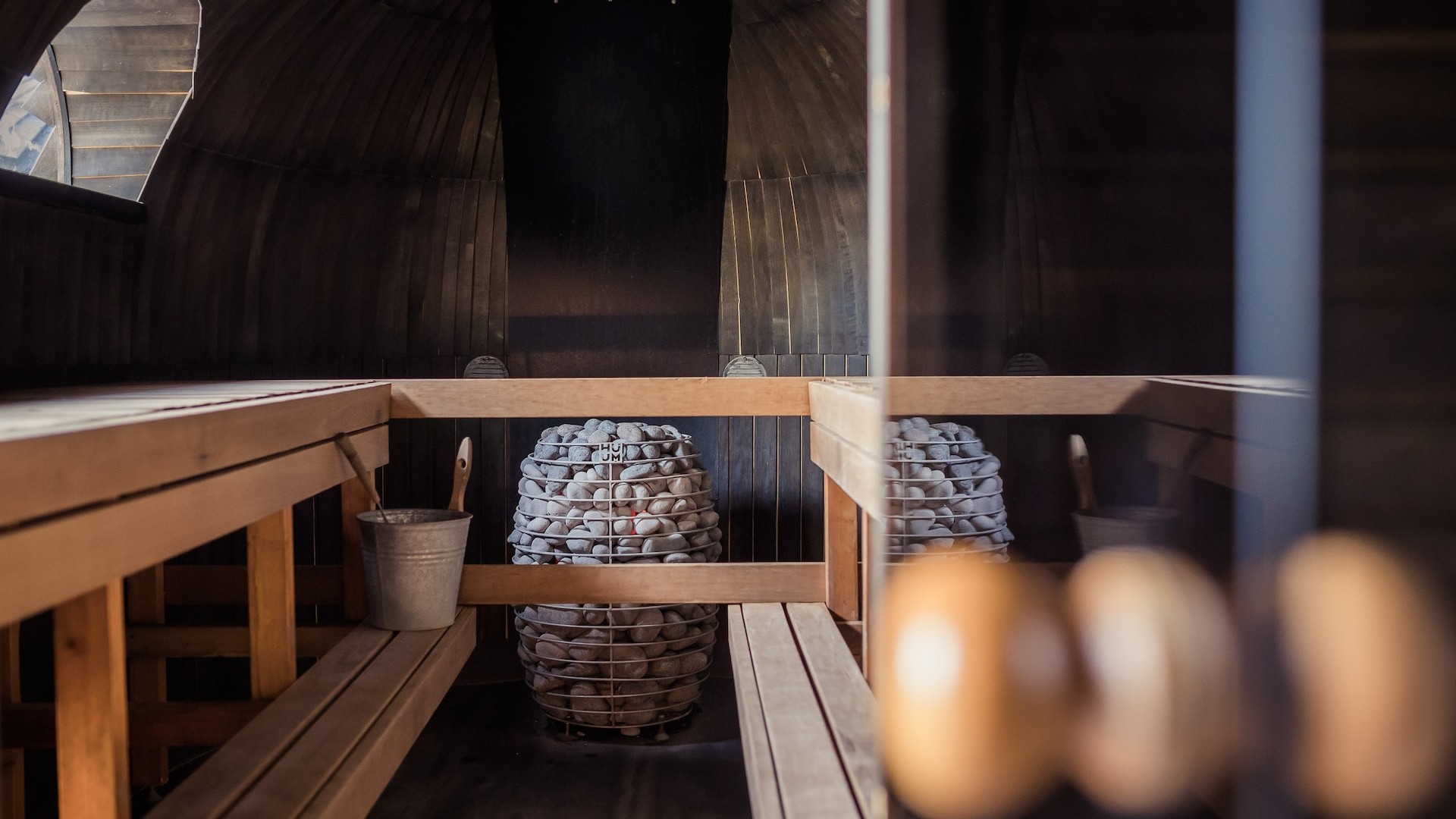Formulate user Bri wrote in with some questions about saunas and acne:
Ok, so I saw on TikTok that saunas are great for acne, that saunas work really well alongside traditional acne treatments, and that it has to do with increased blood circulation, and heat being good for the skin in general (I mean, duh, it's a sauna, it's not going to be about being cold). Is that for real? I'm all for trying new things to keep my skin clear, but I want to know if saunas are the real deal or just some myth, or if there's an easier way to use heat to help your skin. Are there any experts backing this up? Any hard facts? Have you heard any skincare pros talk about it? And if saunas do help with acne, how long should people be sweating it out in there? Are there any precautions we should take if we decide to give saunas a shot, any good before and after stuff? If you could shed some light on this, it would be awesome. I don't want to fry my skin or anything. I'm sure I'm not the only one wondering about this, so a feature on this could be really cool.
Thanks for writing, Bri!
To answer your questions, we spoke with Dr. Nadir Qazi, DO, cosmetic dermatology surgeon and founder of Qazi Cosmetic Clinic in Newport Beach. As a dermatologist, he has a ton of wisdom about best practices for acne, and the roles that saunas can play in caring for acne prone skin. We hope you find our below conversation helpful!
Are there any proven benefits of using saunas for acne treatment or prevention?
Dr. Qazi: There is limited scientific evidence showing proven benefits of sauna use on active acne for either treatment or prevention. Still, there are many potential benefits to sauna usage that can contribute to clearer skin. Some of these benefits may help with mild breakouts and mild cases of acne.
The potential benefits of saunas include the following:
- Acne is caused by a mixture of dirt, oil and bacteria clogging the pores. Saunas can flush out toxins and cleanse the pores of dirt, oil, and bacteria from sweating. This can clear up the skin over time and prevent future outbreaks.
- Sweating also regulates the skin's pH balance and reduces the skin's oiliness, so the sebaceous glands produce less sebum.
- There are two types of saunas: 1) traditional dry heat saunas, which heat the air within the sauna, causing the body to warm from the outside in, and 2) infrared saunas, which are newer and use infrared light panels to penetrate the skin, heating the body from the inside out. Infrared saunas are also thought to eliminate the body of heavy metals and other toxins in the body. They may have additional benefits to the traditional dry heat sauna.
- Saunas are also relaxing, and acne can be worsened by stress. Stress can trigger sebaceous glands to act in overdrive, producing more sebum which then traps dirt, oil, and bacteria.
All of this is good in promoting clearer skin. However, this does not mean saunas are a first line treatment for acne or acne prevention.
Are there any specific triggers or aggravating factors that individuals with acne should be aware of when using saunas?
Dr. Qazi: If you're experiencing a severe acne breakout, do not go to a sauna to fix it. This could aggravate the outbreak further. Saunas induce sweating, and excessive sweating can contribute to clogged pores, making the problem worse. This is especially true for sensitive and/or unclean skin.
Also, you want to avoid saunas if you have open wounds or open acne so that bacteria and sweat don't get inside and exasperate the problem further. The better option is to see a dermatologist. We have many solutions now that do not include medications. So patients who want to avoid pharmaceuticals can get treatment from our myriad of lasers, chemical peels, and other acne treatments.
How does the increased blood circulation caused by saunas impact the skin? Does it have any relevance to acne management?
Dr. Qazi: Increased blood circulation improves the delivery of nutrients and oxygen to the skin and other organs. It helps to flush out toxins and heavy metals. This promotes healing, reduces inflammation, and supports overall skin health, which helps with acne. Still, this is not a direct acne treatment.
I think it's important to note the difference between something improving skin health and something being used as an acne treatment. Again, I reiterate that saunas can be good for overall skin health and can work on mild acne or a few acne spots, but should not be considered an acne treatment, especially for more severe cases.
Apart from saunas, are there other heat therapy methods that can be effective for managing acne-prone skin?
Dr. Qazi: For an at-home remedy, warm compresses can be beneficial in opening pores, bringing whiteheads to the surface, and in facilitating overall skin cleansing.
In our office, we use chemical peels and specialized lasers like Accure lasers and Aviclear lasers to treat active acne and we have other specialized lasers to treat acne scarring.
Lasers use heat therapy, but the heat required for success today is much less than in previous years. This opens the door for us to treat people of all skin colors, types, and tones. This is a game changer because we used to have to work on acne scars manually for people with darker skin tones because the heat from the lasers bleached out the darker skin tones, trading one problem for another. Today's lasers are designed with more precision and less heat.
Can saunas be used as a complementary treatment alongside other acne-fighting methods?
Dr. Qazi: Saunas can be a great complementary tool to use alongside other acne-fighting methods. They can be used as part of a more holistic approach to health and skincare.
I do strongly recommend people with active acne, especially if more than a mild case, consult their dermatologist first to ensure this is a good solution for them. There could be a variety of reasons sauna use could be contraindicated. This will open the conversation between you and your care provider to ensure you are treating your skin properly.
Are there any interactions between acne medications and sauna use that individuals should be aware of?
Dr. Qazi: Some acne medications can make the skin more sensitive to the sun and heat. While risk of a sunburn is unlikely in a sauna, there can be an increased risk of overheating and dehydrating. This can lead to dizziness, fainting and heart problems.
Before starting any treatment, go over the dos and don'ts of your specific medication with your dermatologist or primary care doctor to understand potential interactions and activities to avoid while using the medication. This may include elevating your internal temperature through saunas, spas and other methods.
What kind of feedback have you received from clients who have used saunas for acne management?
Dr. Qazi: Some of my patients have reported healthier and clearer skin overall, especially from infrared saunas, as well as a feeling of better overall health. For others, saunas have exasperated their acne problem because of their skin type and heat sensitivities.
What routine should individuals follow before and after a sauna session to support acne-prone skin?
Dr. Qazi: Before and after a sauna session, the skin should be cleansed with a mild, non-comedogenic cleanser. This removes makeup, oils, and dirt from your skin prior to the sauna and removes sweat and other impurities after the sauna. Cleansing before the sauna can prevent impurities from seeping deeper during your sauna session as pores open wider in the heat.
Also , make sure to hydrate by drinking at least 16 oz or more of water before entering the sauna. This will help your body regulate temperature and prevent dehydration.
Cool down after the sauna with a cooler shower, not a cold shower - you don't want to shock the body. Cooler water will close the pores after a sauna.
Are there specific skincare routines or products that work well in conjunction with sauna sessions for acne-prone individuals?
Dr. Qazi: Use gentle, hydrating, non-comedogenic products. This can include a gentle cleanser and a mild moisturizers to maintain skin balance. You'll want to use products that won't exacerbate dryness. Use caution with harsh toners and other products that have a drying effect. Avoid harsh chemicals, exfoliants, alcohol-based products, and heavy makeup. You're trying to avoid overtaxing the skin with dryness and irritants.
Think nice. Be nicer to your skin and it will be nicer back to you.
What are some common misconceptions people have about saunas and their effects on acne?
Dr. Qazi: Some people incorrectly believe that saunas can treat acne directly or that they can replace more proven acne treatments. Saunas primarily offer blood flow and relaxation benefits. For active acne, lasers, chemical peels, and medications will produce more reliable results, faster, and reduce opportunity for longer-term acne scarring.
How long should a typical sauna session be for someone with acne-prone skin, and is there a maximum recommended duration?
Dr. Qazi: Start small and increase time and heat as you build tolerance for the heat. With traditional dry saunas, start with shorter sessions, maybe 5-10 minutes, and work your way up to 15 to 20 minutes. Infrared sauna sessions are typically 40 minutes long and you can adjust the heat levels to your needs. Again, start at lower heat levels and work your way up.
Wanna learn more about the ins and outs of hair and skin care? Here's what you should read next:
"My Hair Is Naturally Curly But Won't Curl Anymore"
5 tips for getting your natural curls back
Flyaway Hairs: How To Tame 'Em
Buh bye, flyaways!
Curly Hair & Humidity
Your how-to guide for dealing with curly hair in the humidity.
Oil Training Hair: Q&A With A Dermatologist
Everything you need to know about oil training your hair
Curling Hard To Curl Hair: A How-To Guide
Let's curl that hair!
Two different ways to straighten natural hair


